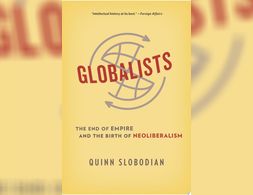617 Ergebnisse
Macroeconomics is fundamental to our understanding of how the world functions today. But too often our understanding is based on orthodox, dogmatic analysis.
Readers of economic and political theory as well as students of economic planning will appreciate this classic, now available for the first time in English. Written eighty years ago, when Sorel became disillusioned with the official socialism of the German and French Marxist parties, this new translation presents Sorel's analysis of the rise and fall of the two great modern ideologies: socialism and liberal capitalism.
Austerity has been at the center of political controversy following the 2008 financial crisis, invoked by politicians and academics across the political spectrum as the answer to, or cause of, our post-crash economic malaise.
This book gives a very clear overview of the history of Macroeconomics and how it has evolved. It reflects on the different perspectives and debates that have defined the field, with valuable insight into the history and theory of economic policy.
After long-time negligence, the Global South and the North-South divide are back on the agenda of development economics again. This book is a neat, accessible introduction into the topic, covering both the current situation and potential remedies from different points of view.
This book offers the first systematic analysis of economic thought concerning war.
This is an important contribution that defends the importance of heterodox economics. It discusses what constitutes heterodox economics as an intellectual, social, and political project, with a range of contributions from leading heterodox thinkers coming from a diversity of theoretical vantage points.
The objective of this MOOC is to develop an understanding of the problems related to water management. Firstly, this course will define a resource and, more specifically, the resource of water. It will look at how water is used and the activities associated with it as well as any potential conflicts. The course will look at water management in detail through the analysis of the different types of rights and obligations associated with, for example, the development of a multi-sectorial regulation system or a watershed management approach.
The world's leading economist of inequality presents a short but sweeping and surprisingly optimistic history of human progress toward equality despite crises, disasters, and backsliding.
In the first intellectual history of neoliberal globalism, Quinn Slobodian follows neoliberal thinkers from the Habsburg Empire’s fall to the creation of the World Trade Organization to show that neoliberalism emerged less to shrink government and abolish regulations than to deploy them globally to protect capitalism.
A comprehensive account of how government deficits and debt drive inflation
Our public services are in dire need of investment. But in the middle of a debate over competing spending plans, isn’t it also time to ask what we want our public services to actually do for us? That’s the view of group of economists and campaigners who are pushing for something called ‘Universal Basic Services’ – a radical expansion of high-quality public services for all to areas like transport, childcare and social care.
Environmental catastrophe looms large over politics: from the young person’s climate march to Alexandria Ocasio-Cortez’s Green New Deal, increasing amounts of political space are devoted to the issue. Central to this debate is the question of whether economic growth inevitably leads to environmental issues such as depleted finite resources and increased waste, disruption of natural cycles and ecosystems, and of course climate change. Growth is the focal point of the de-growth and zero-growth movements who charge that despite efficiency gains, increased GDP always results in increased use of energy and emissions. On the other side of the debate, advocates of continued growth (largely mainstream economists) believe that technological progress and policies can ‘decouple’ growth from emissions.
This lecture acts as an introduction to the Macroeconomics course (ECON 720) at John Jay College. Throughout the lecture, the classical and Keynesian conceptions of macroeconomic relationships are contrasted.
Die Rolle des Gleichgewichtskonzepts in der mikroökonomischen Ausbildung Claudius Gräbner Quelle van Treeck Till and Janina Urban Wirtschaft neu denken Blinde Flecken in der Lehrbuchökonomie iRights Media 2016 Das Buch kann hier bestellt werden http irights media de publikationen wirtschaft neu denken Rezensierte Bücher Pindyck R S Rubinfield D L …
Eine kritische Bestandsaufnahme des Lehrbuchs "Makroökonomie" von Oliver Blanchard und Gerhard Illing.
Mit dem seit Ende März allseits konstatierten Beginn einer Wirtschaftskrise stellen sich vorrangig zwei Fragen: Inwieweit ist die Corona-Pandemie der Ausgangspunkt (oder gar die Ursache) dieser Krise? Und zweitens: Kann mit den beschlossenen Hilfsprogrammen eine tiefgreifende, langanhaltende Rezession verhindert werden?
The core of Georgism is a policy known as the Land Value Tax (LVT), a policy which Georgists claim will solve many of society and the economy’s ills. Georgism is an interesting school of thought because it has the twin properties that (1) despite a cult following, few people in either mainstream or (non-Georgist) heterodox economics pay it much heed; (2) despite not paying it much heed, both mainstream and heterodox economists largely tend to agree with Georgists. I will focus on the potential benefits Georgists argue an LVT will bring and see if they are borne out empirically. But I will begin by giving a nod to the compelling theoretical and ethical dimensions of George’s analysis, which are impossible to ignore.
How countries achieve long-term GDP growth is up there with the most important topics in economics. As Nobel Laureate Robert Lucas put it “the consequences for human welfare involved in questions like these are simply staggering: once one starts to think about them, it is hard to think about anything else.” Ricardo Hausmann et al take a refreshing approach to this question in their Atlas of Economic Complexity. They argue a country’s growth depends on the complexity of its economy: it must have a diverse economy which produces a wide variety of products, including ones that cannot be produced much elsewhere. The Atlas goes into detail on exactly what complexity means, how it fits the data, and what this implies for development. Below I will offer a summary of their arguments, including some cool data visualisations.
Participants should be able to distinguish the strictly non-cooperative (methodological individualist) foundations of traditional neoclassical economics as being couched in self-interested individuals, as well as having basic knowledge of an alternative set of theories based on the primacy cooperation and social norms and extending the breadth of economic analysis beyond exchange.
Learn the basics of microeconomics including supply and demand of commodities and how equilibrium in the market affects price Joon Koo Lee edX Seoul National University
Der Fokus der Verhaltensökonomik liegt auf dem beobachtbaren Verhalten von Menschen und deren Entscheidungen.
Isabella M Weber and Evan Wasner challange the dominant view of inflation that it is macroeconomic in origin and must always be tackled with macroeconomic tightening In contrast they argue that inflation is predominantly a sellers inflation that derives from microeconomic origins namely the ability of firms with market power …
The podcast discusses how to deal with the rising inflation and presents a comparative perspective between the US and the EMU. Basically the speakers discuss whether we are heading to a stagflation in Europe similar to the 1970s and they compare the macroeconomic dynamics in the United States vs. the EMU.
Marx Reloaded is a cultural documentary that examines the relevance of German socialist and philosopher Karl Marx s ideas for understanding the global economic and financial crisis of 2008 09 The crisis triggered the deepest global recession in 70 years and prompted the US government to spend more than 1 …
Feminist economics critically analyzes both economic theory and economic life through the lens of gender, and advocates various forms of feminist economic transformation. In this course, we will explore this exciting and self-consciously political and transformative field.
Is or has economics ever been the imperial social science? Could or should it ever be so? These are the central concerns of this book. It involves a critical reflection on the process of how economics became the way it is, in terms of a narrow and intolerant orthodoxy, that has, nonetheless, increasingly directed its attention to appropriating the subject matter of other social sciences through the process termed "economics imperialism".
The book deals with the financial instability hypothesis of Hyman P. Minsky and its application to current developments. The first part of the work summarizes the hypothesis and mentions works elaborating the hypothesis. The second part applies the hypothesis to the financial crisis 0f 2008/09.
Focusing on Kenya’s path-breaking mobile money project M-Pesa, this book examines and critiques the narratives and institutions of digital financial inclusion as a development strategy for gender equality, arguing for a politics of redistribution to guide future digital financial inclusion projects.
This course will expose students to some of the key debates that link digital transformations to economic, social, and political inequalities. Students will be familiarised with a variety of theoretical movements in development studies and internet studies: exploring thinking that frames the internet as a leveller that can bridge divides vs. exploring the internet as an infrastructure that amplifies existing inequalities.
Microeconomics in Context lays out the principles of microeconomics in a manner that is thorough, up to date, and relevant to students. Like its counterpart, Macroeconomics in Context, the book is uniquely attuned to economic realities. The "in Context" books offer affordability, accessible presentation, and engaging coverage of current policy issues from economic inequality and global climate change to taxes.
Wir nutzen Cookies. Klicke auf "Akzeptieren" um uns dabei zu helfen, Exploring Economics immer besser zu machen!































